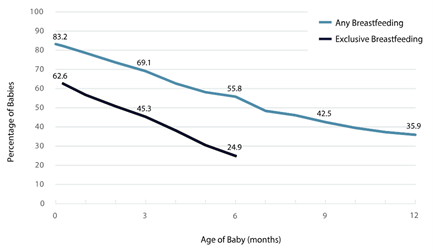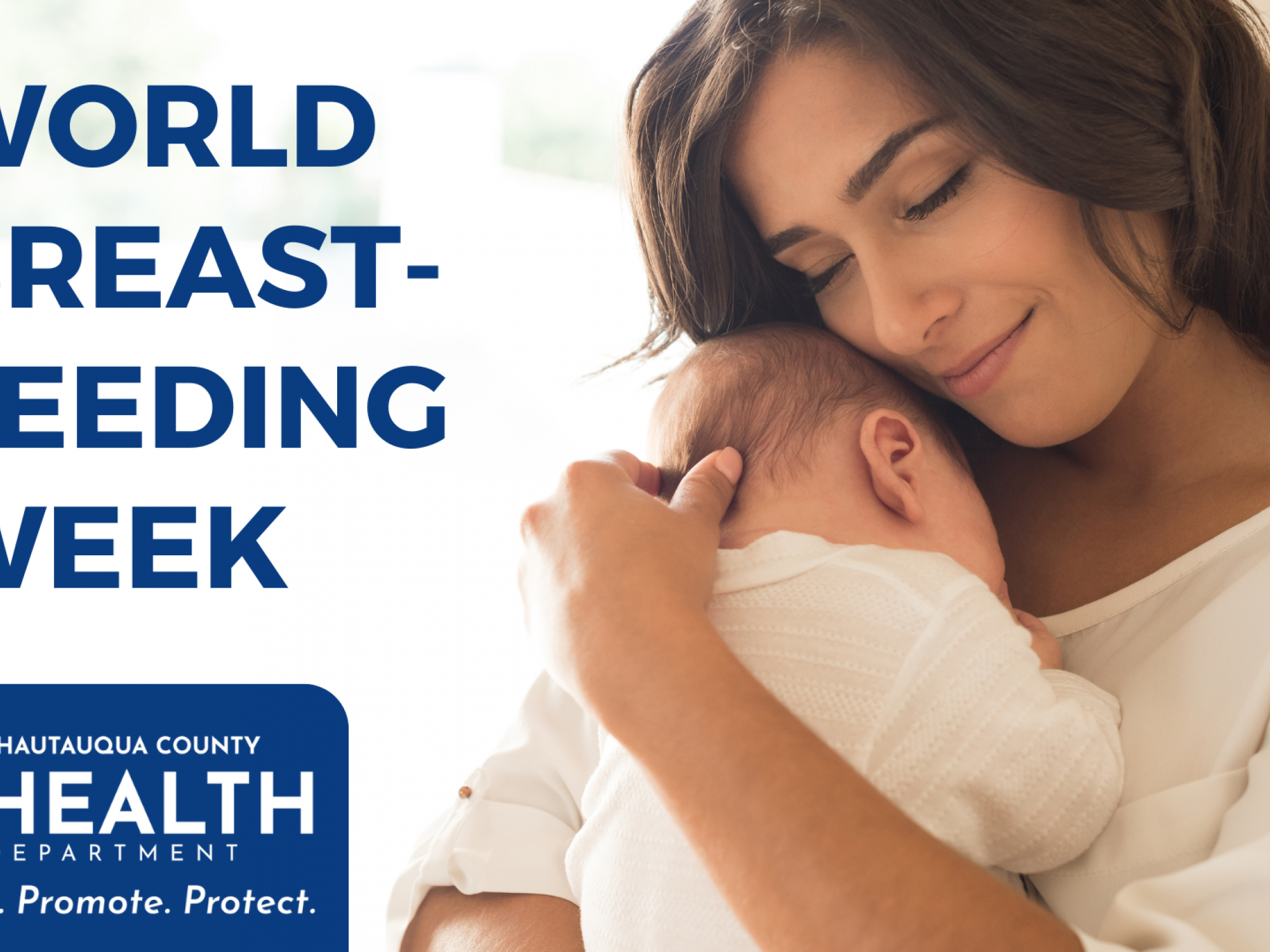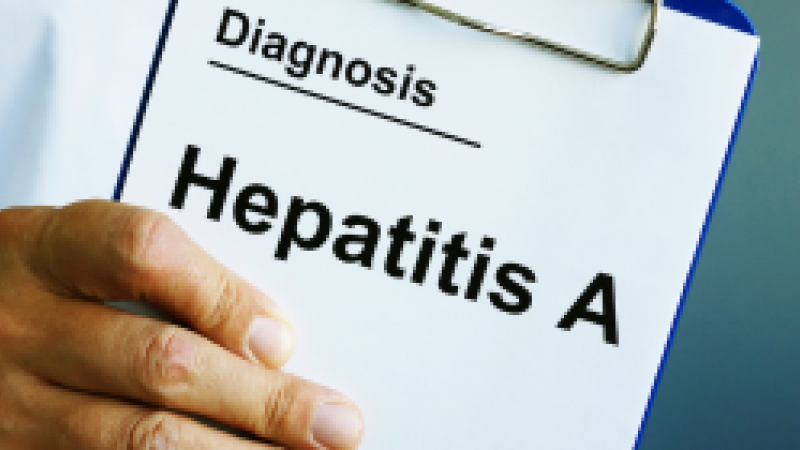MAYVILLE, NY — The Chautauqua County Health Department (CCHD) joins in celebrating National Breastfeeding Month in August and World Breastfeeding Week August 1-7, 2024. This year’s World Breastfeeding Week theme, Closing the Gap: Breastfeeding Support for All, celebrates breastfeeding moms in all their diversity, throughout their breastfeeding journeys, while showcasing the ways families, societies, communities and health workers support breastfeeding moms.
Through their Welcome Home Baby Program, CCHD is helping achieve just that by providing every new parent in Chautauqua County a one-time visit with a Public Health Nurse. During the visit, new parents receive lactation support along with free supplies to help them continue to successfully breastfeed. Additional visits from a lactation consultant can take place if needed and moms are encouraged to contact the breastfeeding hotline at 844-423-2229.
“Our nurses visit UPMC Chautauqua’s maternity unit throughout the week to greet new moms and let them know we are here to help with questions, even after discharge during the Welcome Home Baby Program visit and through around the clock support offered to those struggling to breastfeed,” states Cathy Burgess, Director of Community Health Nursing. “UPMC and other surrounding hospitals outside the county do a great job to get mothers started on the right track with their breastfeeding goals. We can step in and offer that, often much needed, support later when moms may be feeling frustrated and about to give up.”
It doesn’t stop there. Supportive workplaces are essential for breastfeeding parents as they return to the workforce. Evidence shows that while breastfeeding rates drop significantly for women when they return to work, that negative impact can be reversed when workplaces provide resources to allow mothers to continue to breastfeed their babies.

Figure 1: Percentage of babies receiving any and exclusive breast milk during the first 12 months, among children born in 2019.
Family-friendly workplace policies - such as paid maternity leave, breastfeeding breaks, and a room where mothers can breastfeed or express milk - create an environment that benefits not only working women and their families but also employers. These polices generate economic returns by reducing maternity-related absenteeism, increasing the retention of female workers, and reducing the costs of hiring and training new staff.
The American Academy of Pediatrics recommends exclusive breastfeeding for your baby’s first six months of life, and breastfeeding supplemented with solid foods from six months to two years and beyond.
“From the earliest moments of a child’s life, breastfeeding promotes healthy child development,” states Lacey Wilson, Chautauqua County’s Public Health Director. “Breastfeeding protects babies from common infectious diseases and boosts children’s immune systems, providing the key nutrients children need to grow and develop to their full potential.”
Babies who are breastfed:
- Experience less respiratory and gastrointestinal illnesses, as well as less ear infections, allergies and skin rashes.
- Face less risk from Sudden Infant Death Syndrome (SIDS), obesity, Type 2 Diabetes, and Leukemia.
Moms who breastfeed:
- Are less likely to develop Type 2 Diabetes, Breast and Ovarian Cancers, or Postpartum Depression.
- Heal from birthing quicker and in many cases, lose baby weight faster
Tips for making it work:
- Feed early and often! Breastfeed as soon as possible after birth. In the first few days after birth, your baby will likely need to breastfeed every hour or two in the daytime and a couple of times at night.
- Learn your baby’s hunger signs. When babies are hungry, they become more alert and active. They may put their hands or fists in their mouth, make sucking motions or turn their head looking for the breast.
- Follow your baby’s lead. Make sure you are comfortable and follow your baby’s lead after he or she is latched on well. Some babies take both breasts at each feeding and others take only one.
- Keep your baby close to you. Remember that baby is not used to this new world and needs to be held very close to his or her mother. Avoid nipple confusion. Avoid using pacifiers, bottles and supplements of formula in the first few weeks unless medically indicated.
- Sleep safely and close by. Have your baby sleep in a crib or bassinet in your room so that you can breastfeed more easily at night.
- Know when to wake the baby. In the early weeks after birth, you should wake your baby to feed if 4 hours have passed since the beginning of the last feeding.
For more information about the Chautauqua County Welcome Home Baby Program and breastfeeding support, please visit us at HealthyCHQ.com/BABY







